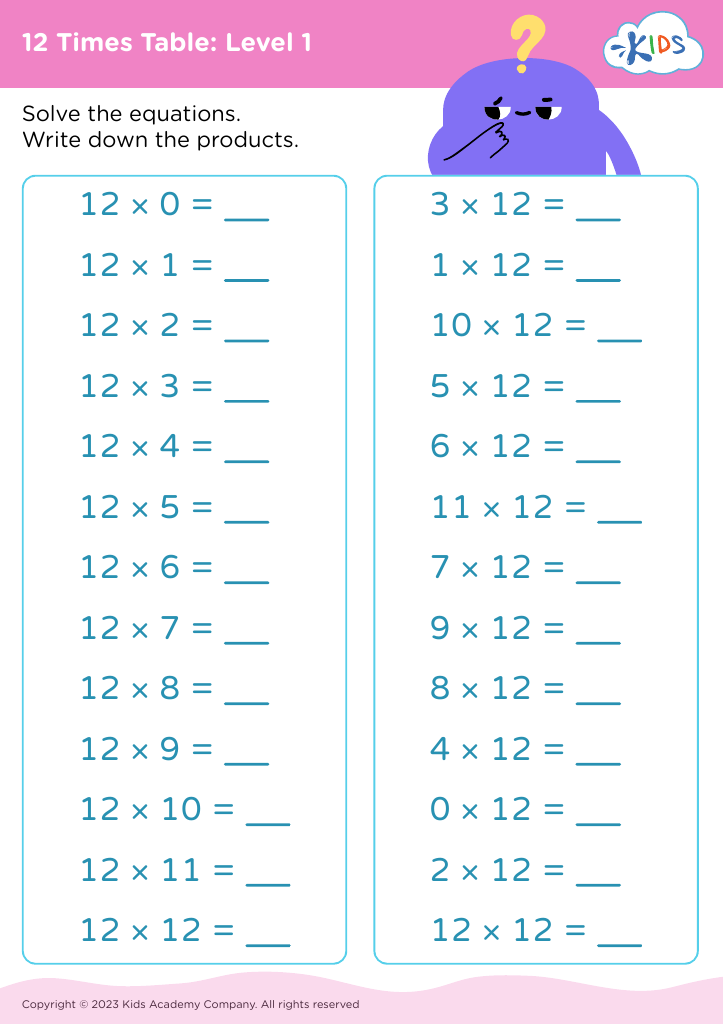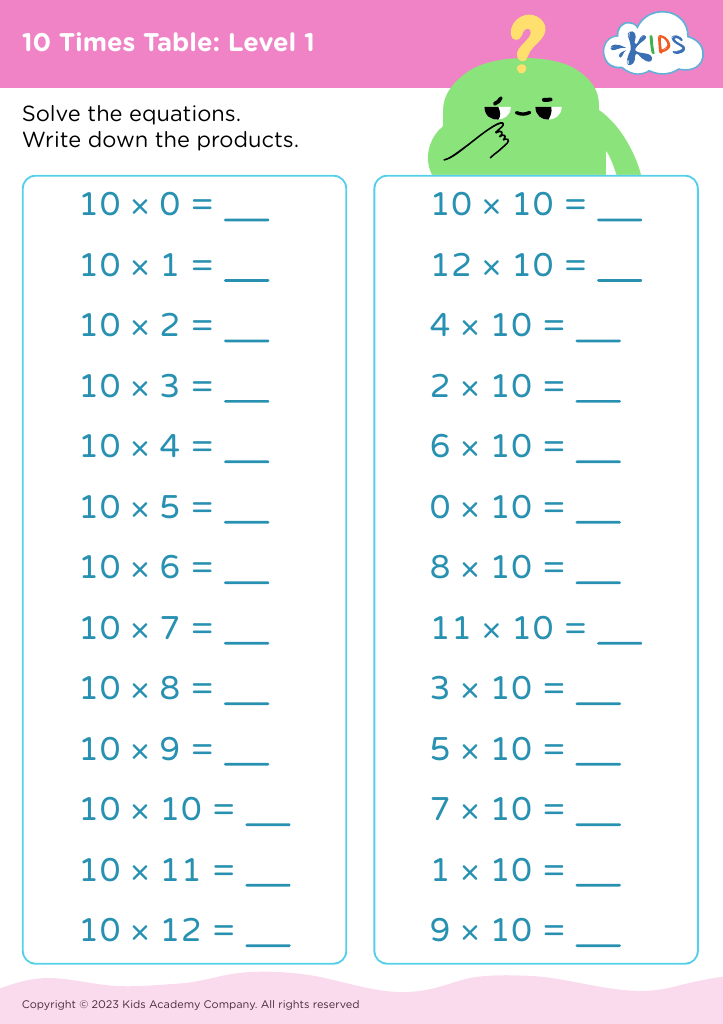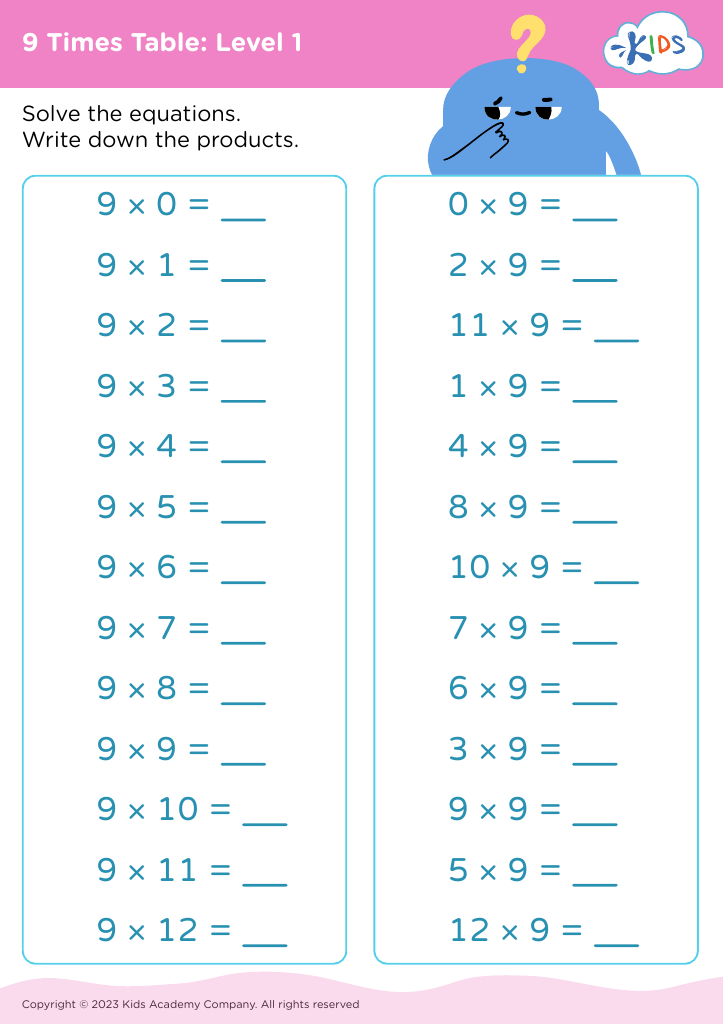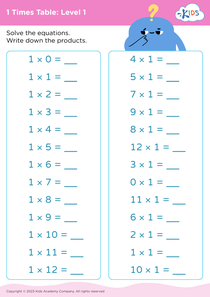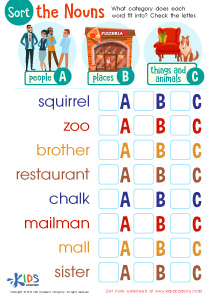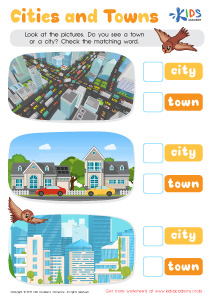Understanding patterns Easy Grade 3 Times Tables Worksheets
3 filtered results
-
From - To
Unlock the secrets of multiplication with our "Understanding Patterns: Easy Grade 3 Times Tables Worksheets"! Designed to enhance math skills, these worksheets introduce third graders to the fascinating world of times tables through engaging pattern recognition exercises. Kids will explore numerical patterns, fostering a deeper understanding of multiplication concepts while boosting their confidence. Each worksheet is crafted to be user-friendly, supporting independent learning and making math fun. Ideal for classroom use or at-home practice, our resources ensure a solid foundation in math fundamentals, setting the stage for future success. Elevate your child's math journey today!
Understanding patterns in Grade 3 times tables is key for young learners as it lays the foundation for advanced mathematical concepts. When parents and teachers emphasize pattern recognition, children become adept at solving problems more efficiently. Patterns simplify multiplication, turning a cumbersome task into an engaging activity where kids can predict and verify results. For instance, recognizing that the products of 2's times tables are always even helps students check their work without repeatedly counting on fingers.
Moreover, grasping times table patterns fosters a love for math by transforming abstract numbers into familiar, predictable sequences. Patterns in numbers, such as the iterative addition in 5’s tables (5, 10, 15, 20), introduce students to the concept of progression and sequence. This aids in developing number sense — an intuitive understanding of how numbers work.
Strong foundational skills in multiplication are critical for future topics like division, fractions, and algebra. It empowers students by boosting their confidence and proficiency, making complex problems manageable in later grades. Equally importantly, these skills are applicable in real-life scenarios, such as quick mental calculations when shopping or cooking. By focusing on pattern comprehension in times tables, parents and teachers prepare children for lifelong academic and practical success.
